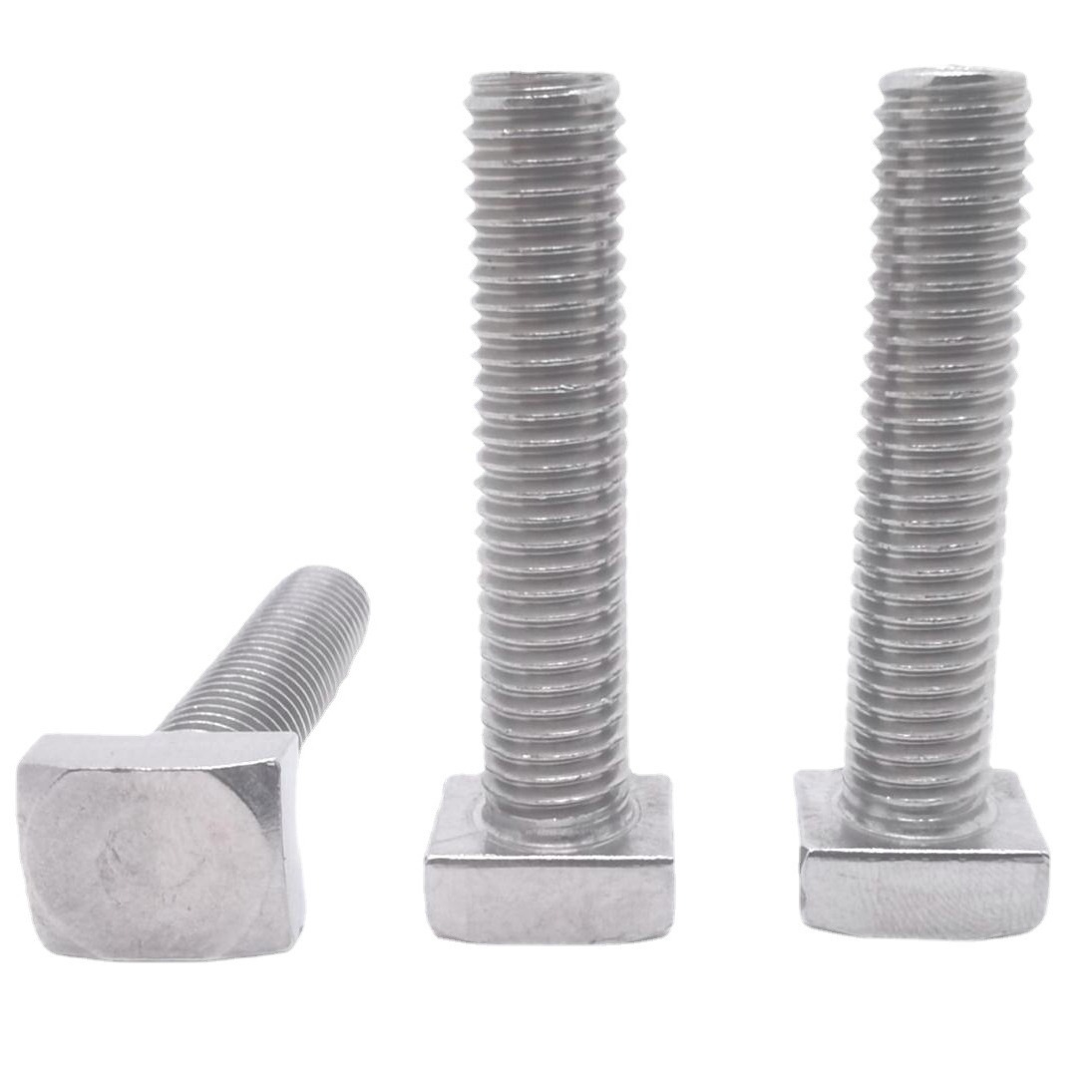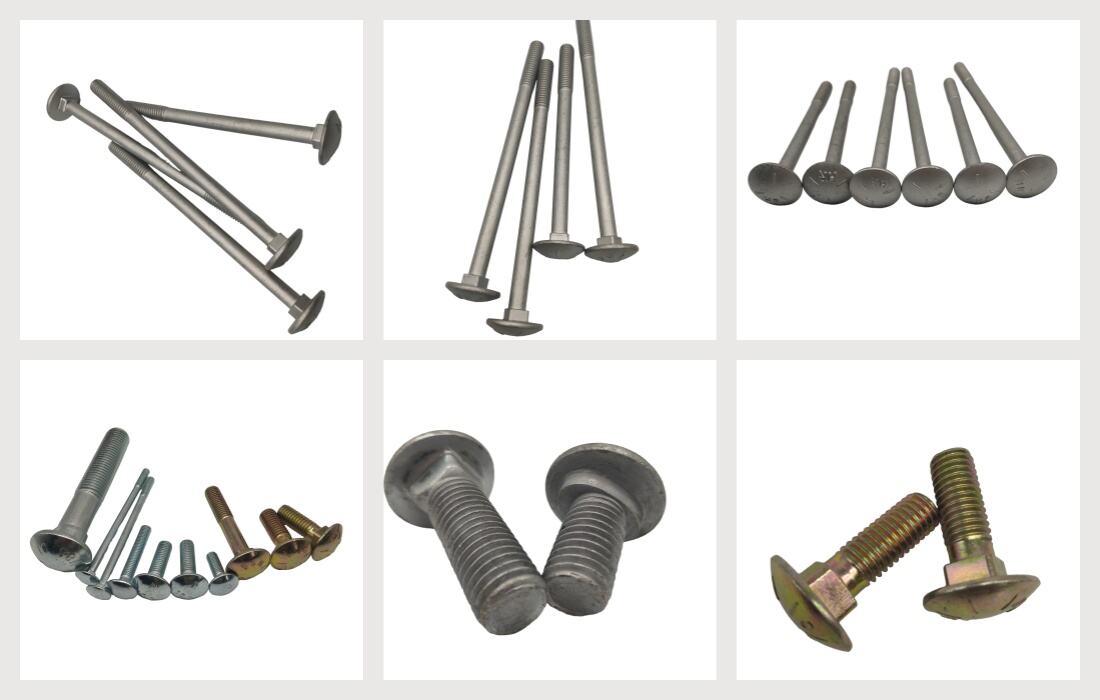Transforming Manufacturing Through Advanced Fastening Solutions
The landscape of industrial manufacturing has been revolutionized by the continuous evolution of industrial fasteners. These essential components, often overlooked yet crucial to virtually every assembly process, have undergone remarkable transformations since their inception. From simple wooden pegs to sophisticated smart fastening systems, the journey of industrial fasteners mirrors the progress of human engineering and technological advancement.
Today's industrial fasteners represent the pinnacle of precision engineering, combining innovative materials, cutting-edge design principles, and advanced manufacturing techniques. As industries push the boundaries of what's possible in construction, aerospace, automotive manufacturing, and countless other sectors, the demands placed on fastening solutions continue to grow exponentially.
Modern Materials Revolution in Fastener Technology
Advanced Alloys and Composite Materials
The development of new materials has dramatically expanded the capabilities of industrial fasteners. High-performance alloys, including titanium-based compounds and nickel-chromium combinations, offer unprecedented strength-to-weight ratios. These advanced materials enable fasteners to withstand extreme temperatures, resist corrosion, and maintain structural integrity under intense pressure conditions.
Composite materials have also made their mark in the fastener industry, with carbon fiber-reinforced polymers and ceramic-metal hybrids offering unique solutions for specialized applications. These innovative materials provide engineers with options that combine lightweight properties with exceptional durability, revolutionizing how components are joined in modern manufacturing.
Smart Materials and Adaptive Technologies
The integration of smart materials into industrial fasteners marks a paradigm shift in joining technology. Shape-memory alloys that respond to temperature changes, piezoelectric materials that generate electrical charges under mechanical stress, and self-healing polymers that can repair minor damage automatically represent the cutting edge of fastener innovation.
These intelligent materials enable fasteners to adapt to changing environmental conditions, monitor their own structural health, and even communicate potential issues before failure occurs. Such capabilities are particularly valuable in critical applications where component failure could have severe consequences.
Digital Integration and Smart Fastening Systems
IoT-Enabled Monitoring Solutions
The Internet of Things (IoT) has transformed industrial fasteners from passive components into active monitoring devices. Embedded sensors within modern industrial fasteners can now track crucial parameters such as tension, temperature, and vibration in real-time. This data provides invaluable insights into the performance and condition of critical connections.
Manufacturing facilities are increasingly adopting these smart fastening systems to enhance their predictive maintenance capabilities. By analyzing the data collected from sensor-equipped fasteners, maintenance teams can identify potential issues before they lead to equipment failure or production interruptions.
Automated Installation and Verification
Digital technology has revolutionized the installation and verification of industrial fasteners. Advanced torque control systems, guided by sophisticated software algorithms, ensure precise installation parameters are met consistently. These systems can automatically adjust to different material properties and environmental conditions, maintaining optimal performance across varied applications.
Quality control has been enhanced through the integration of digital verification tools that can instantly confirm proper installation and document compliance with specifications. This technological advancement has significantly reduced installation errors and improved overall assembly reliability.

Sustainable Solutions in Fastener Development
Eco-Friendly Manufacturing Processes
Environmental consciousness has driven significant changes in how industrial fasteners are manufactured. Modern production facilities employ energy-efficient processes, recycled materials, and waste reduction strategies to minimize their environmental impact. Water-based coating systems have replaced traditional solvent-based options, while advanced machining techniques reduce material waste during production.
The adoption of sustainable manufacturing practices extends beyond the production floor to include packaging and distribution systems designed to minimize carbon footprint. Many manufacturers now utilize recyclable packaging materials and optimize shipping routes to reduce environmental impact.
Recyclable and Biodegradable Options
Innovation in material science has led to the development of industrial fasteners that address end-of-life environmental concerns. Biodegradable polymers and easily recyclable metal alloys offer sustainable alternatives for applications where permanent fastening isn't required. These environmentally conscious solutions maintain necessary performance characteristics while reducing long-term environmental impact.
Research continues into new materials that can decompose safely after their useful life while maintaining the strength and reliability required during service. This represents a significant step toward circular economy principles in industrial manufacturing.
Frequently Asked Questions
What are the latest trends in industrial fastener materials?
Current trends focus on lightweight yet durable materials, including advanced titanium alloys, carbon fiber composites, and smart materials with self-monitoring capabilities. There's also growing interest in sustainable and recyclable materials that maintain high performance standards while reducing environmental impact.
How are smart fasteners changing industrial maintenance?
Smart fasteners equipped with IoT sensors are revolutionizing maintenance practices by enabling real-time monitoring of critical connections, predictive maintenance scheduling, and automated alert systems for potential failures. This technology significantly reduces downtime and improves overall system reliability.
What role do industrial fasteners play in sustainable manufacturing?
Industrial fasteners contribute to sustainable manufacturing through eco-friendly production processes, the use of recyclable materials, and designs that facilitate easy disassembly and material recovery. Modern fasteners also help reduce waste by extending product lifecycles and enabling efficient repairs and maintenance.

